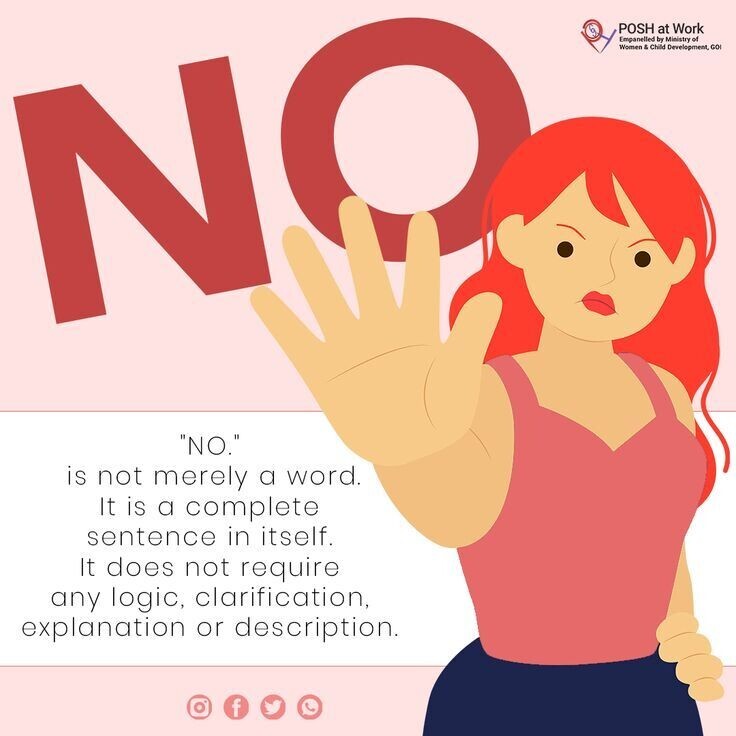
Picture Source: Pinterest
Public Service Announcements (PSAs) are not just about creating awareness—they are powerful tools for addressing societal taboos, including the often-ignored subject of marital consent. For South Asian women, where patriarchal norms heavily influence personal and relational dynamics, PSAs serve as a beacon of change, advocating for agency and equality in all spheres of life.
Historical Context: Breaking the Silence Around Marital Consent
In South Asian cultures, marriage is frequently romanticized as the ultimate union, leaving little room to discuss boundaries within the relationship. Traditional norms often assume that consent is implicit in marriage, which can perpetuate marital abuse. Cultural taboos around discussing marital dynamics further silence women who experience such violations.
The depiction of marital assault in Akaash Vani is a poignant illustration of this issue. Vani’s husband assaults her, dismissing her agency and treating her body as his entitlement. Her subsequent struggle to confront the abuse and find her voice mirrors the silent battles faced by countless women in similar situations. This narrative highlights the urgency of using PSAs to normalize discussions around marital consent, emphasizing that abuse within a marriage is neither acceptable nor inevitable.
Media as a Catalyst for Cultural Change
PSAs that challenge these deep-seated cultural assumptions play a transformative role in shifting perceptions of consent. Campaigns like Consent is Always Necessary by Breakthrough India and No Excuse for Abuse in Pakistan have addressed marital consent explicitly. By framing consent as a universal right rather than a privilege, these initiatives seek to dismantle the notion that marriage overrides personal boundaries.
Case Studies: Highlighting Marital Consent Through PSAs
Notable PSAs addressing marital dynamics include campaigns like #HaqSeConsent, which reframe marriage as a partnership built on respect and mutual agreement. Through impactful narratives, such as a young bride speaking out about her discomfort on her wedding night, these PSAs challenge the entrenched belief that marriage negates the need for explicit consent.
Similarly, Breakthrough India’s It’s My Body campaign encourages women to reclaim autonomy in all areas of life, including intimate relationships. By illustrating real-life scenarios, these PSAs resonate deeply with viewers and spark critical conversations.
Storytelling as an Empowerment Tool
The storytelling approach in Akaash Vani aligns with the narrative strategies employed by PSAs. Vani’s journey from victim to survivor showcases the emotional toll of marital assault while also empowering viewers to confront similar issues in their lives. PSAs that adopt such storytelling techniques provide a relatable and empathetic lens through which audiences can understand the nuances of consent, particularly in marital contexts.
Challenges in Changing Perceptions
Despite their efforts, PSAs often face backlash in conservative societies where marital dynamics are considered private matters. The stigma surrounding marital consent remains pervasive, and many women feel pressured to remain silent for fear of social ostracism or familial dishonor.
These challenges emphasize the need for culturally sensitive messaging that resonates with diverse audiences while challenging harmful norms.
Role of Influencers and Activists
Activists and influencers play a pivotal role in amplifying these messages. Figures like Malala Yousafzai and South Asian feminist collectives bring attention to the issue by sharing personal stories and engaging their audiences in conversations about consent and gender equality. Their voices, combined with the outreach of PSAs, foster a larger cultural movement toward acknowledging and respecting personal boundaries.
Evaluating Impact: Real-World Change
Research shows that PSAs tailored to address marital consent lead to significant shifts in perception. Surveys following the #HaqSeConsent campaign revealed increased awareness among young married couples, with many reporting newfound confidence in discussing boundaries within their relationships. This feedback highlights the importance of culturally nuanced, relatable storytelling in driving change.
Future Directions: Toward Inclusive and Interactive Campaigns
To continue this progress, PSAs must evolve to incorporate interactive and digital storytelling techniques that engage younger audiences. Collaborations with local artists and cultural influencers can further amplify these messages, ensuring they reach rural and marginalized communities where such discussions are most needed.
PSAs addressing consent in all forms, including marital dynamics, are essential for breaking the silence surrounding these issues. By fostering conversations that challenge harmful traditions, these campaigns not only empower women but also pave the way for a more equitable society. The narrative of Akaash Vani reminds us of the importance of media in bringing these stories to light, inspiring change, and reshaping cultural attitudes toward consent.
No Responses